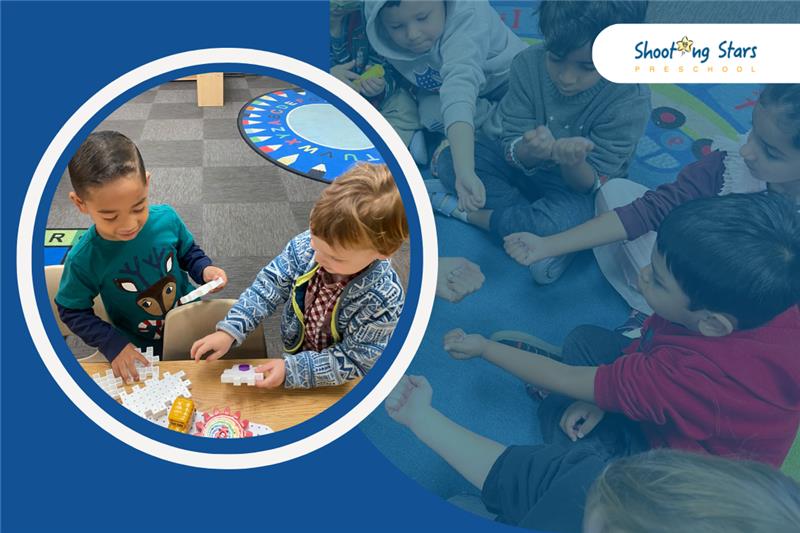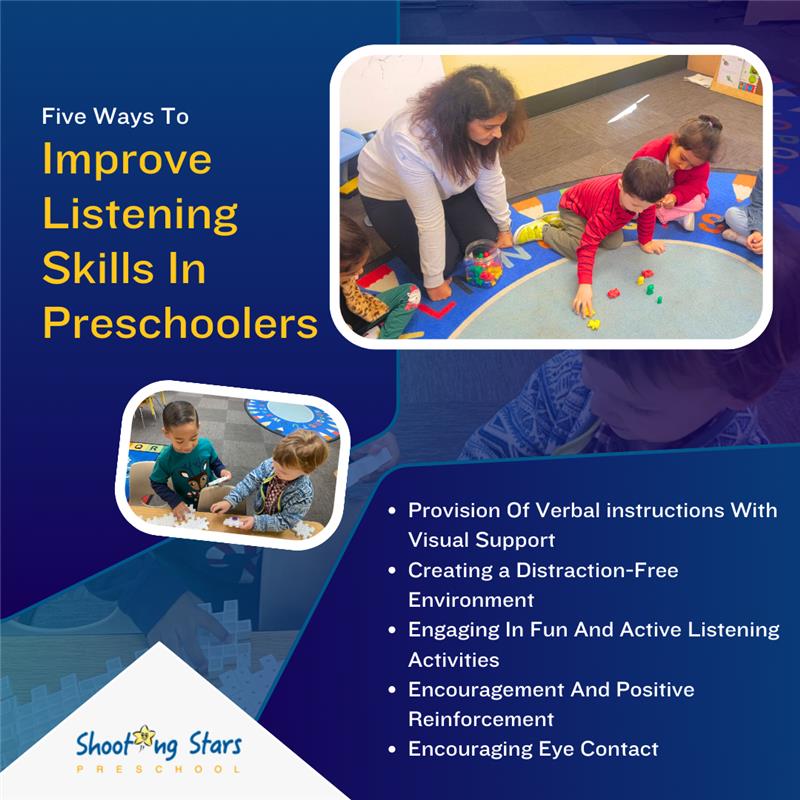|
Listening is an essential part of soft skills that molds a person into a better version. Incorporating listening skills into daily lives can make a huge difference for our loved ones and enable us to support them unconditionally. To achieve soft skills, children from Nursery must be trained to develop listening skills from the initial years of life for a foundational future. This blog covers tips and practices for the development of strong listening skills in preschoolers. Continue reading to explore some fantastic ways. Key Takeaways
Importance of Listening skillsIncorporating listening skills in children from kindergarten incorporates tremendous focus and helps them learn to pay attention without getting easily distracted. Children with solid listening skills tend to become adults with great communication skills and can easily comprehend complex subjects. Listening skills don't mold children into better adults but play a critical role in shaping their careers as they incorporate undivided attention trait, focus, and patience that makes a perfect recipe for success. As we have discussed, listening skills are important in children. Let's explore amusing and enthralling ways of developing children's listening skills. Five Ways To Improve Listening Skills In PreschoolersKeep reading to explore efficient ways to incorporate listening skills in preschoolers. Provision Of Verbal instructions With Visual SupportPreschoolers are highly dependent on visual cues to comprehend and process the information. By associating verbal instructions with visual aids, it is simpler to enhance a child's listening skills. Let us look into some ways.
Creating A Distraction-Free EnvironmentPreschoolers are naturally curious and can get distracted, making it challenging for them to focus on tasks and attentively listen. So, creating a distraction-free environment is important for developing efficient communication and promoting active listening skills in children. Let's discuss some strategies for establishing a distraction-free environment.
Engaging In Fun And Active Listening ActivitiesActive listening is a basic skill that is not just hearing words but also comprehending the meaning, interpreting non-verbal cues, reciprocating genuine interest in the speaker's message, and avoiding interrupting. For preschoolers, active listening skills can be incorporated by following strategies.
Encouragement And Positive ReinforcementEncouraging the child's efforts to improve listening skills by providing positive reinforcement is a powerful way of making them determined to develop listening skills. Praise them when they pay attention and follow your instructions without interrupting. Ask questions to engage them in conversations and validate their understanding by asking them to repeat their own words. Let us explore a few strategies of encouragement.
Encouraging Eye ContactInstruct children to maintain eye contact while listening to others. Eye contact indicates respect and attention and also helps in understanding non-verbal cues. Use visual aids during storytelling and reading-aloud sessions to encourage eye contact and reinforce the connection between words heard and their meanings. Let us learn some strategies to incorporate eye contact.
ConclusionWe have discussed various activities and techniques to train preschoolers to develop active listening from a young age. Reinforcing listening skills can make them good communicators in adulthood. In conclusion, developing good listening skills in preschoolers is an important skill that sets the stage for effective communication and learning. By engaging in active listening activities, fostering eye contact, providing clear instructions with visual support, offering positive reinforcement, and establishing a distraction-free environment, you can help your child become a better listener and communicator from a young age. Preschool in Dublin offers a variety of activities and programs specifically designed to shape the personality of children and reinforce positive spirits. FAQsWhat are some common challenges parents face when trying to improve their child's listening skills?
Some common challenges parents face include distractions, short attention spans, difficulty following instructions, and limited understanding of language nuances. It can also be challenging to find engaging and effective strategies to encourage active listening. What specific strategies does Shooting Stars Preschool use to enhance preschoolers' listening skills? Shooting Stars Preschool employs a range of interactive and engaging activities to promote listening skills among preschoolers. These may include storytelling sessions, music and movement activities and interactive games. What are some measurable outcomes or improvements that parents can expect to see in their child's listening skills after attending Shooting Stars Preschool? Parents can expect to see improvements in their child's ability to follow instructions, comprehend spoken language, engage in meaningful conversations, and demonstrate active listening behaviors. These skills contribute to enhanced academic readiness and social interactions as children progress through their preschool years. Comments are closed.
|



